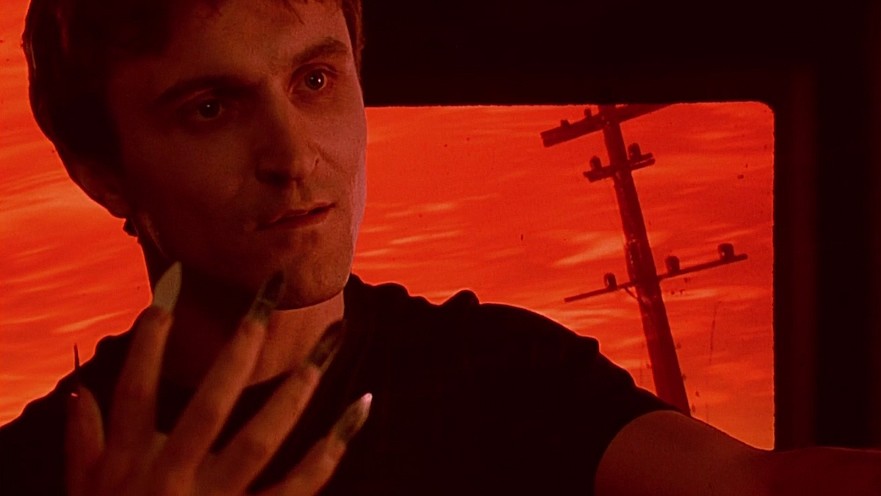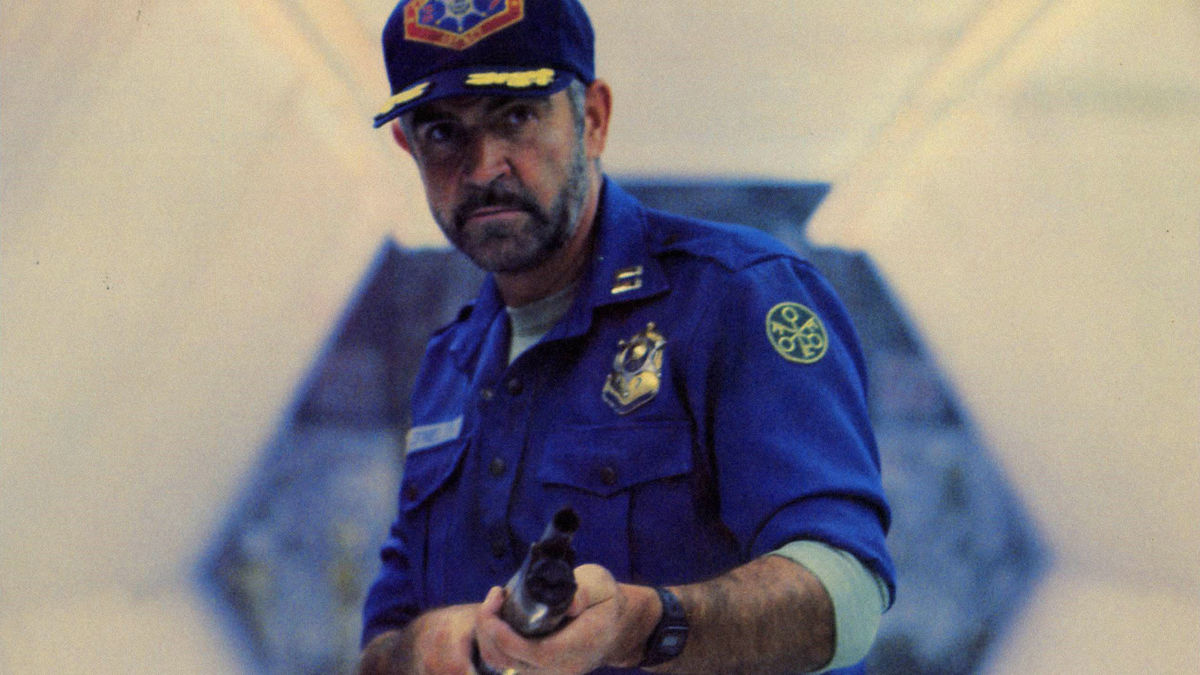
“I’ll be back!”, “Phone home,” “Like tears in rain…” All these lines or speeches are still popular today as ever. The 1980s were such a great decade for the genre. The technological advancement was helping the films look better and go to areas they haven’t before but it was also one of the main subjects of their plots. The fear of technology and it getting out of control are still relevant themes. When you watch these films, they resonate strongly not only for themes but because some of them have a better cinematic look/visuals than many films made today.
That’s the decade that brought us many classics like “Blade Runner,” “Back to the Future,” and “Aliens” overall! Now the visuals were more innovative, narratives were more complex, and even the cheesy films were still fun. It’s also always fun to look at them and see what they predicted right or wrong. The sci-fi was more mainstream than ever.
All that said, amidst the decade’s high-profile successes, there were numerous lesser-known films that flew under the radar but offered equally compelling explorations of sci-fi themes with imaginative visuals. Some of them were full of thought-provoking ideas, and some others were just trying to entertain us. For those who enjoy science fiction but want to dive deeper than the usual hits, hopefully this list will have something to offer.
10. Death Watch (1980)

Before “The Truman Show” and “Black Mirror,” there was “Death Watch”! In a city of the future where death from illness is a rare occurrence, the TV giants have come up with a cynical idea: they are offering their viewers the opportunity to experience a real death in a lifelike way. Katherine (Romy Schneider) is a terminally ill woman who becomes the unwitting subject of a reality show that broadcasts her final days. Thanks to the surgically implanted eyes of Roddy (Harvey Keitel), it’s possible to secretly record her every moment for the show. The fears and despair of the subject, which the camera records and broadcasts on television every evening, actually increase the ratings, but Roddy gets unsure about his feelings on all these things.
Indeed, it’s a premise that would cause outrage, and many people would protest, but many others would watch anyway because it’s not easy to kill your curiosity. It’s a great premise, and luckily the filmmakers managed to make a powerful film out of it. It competed for the Golden Bear and was nominated for some Cesar awards, which are basically the French Academy Awards, but the film didn’t get the international attention enough and seemingly doesn’t get mentioned much now. “The Truman Show” mention here is not just because of the reality TV aspect of the story but because it raises questions about many other things, including the human suffering for mass entertainment, privacy, consent, and just the general dehumanizing effects of media.
The film has a great atmosphere, which is grim but also has a melancholic tone. Romy Schneider shines in the leading role, and Harvey Keitel, a legend who recently didn’t get enough chance to show his incredible talent, is once again giving a very effective performance. The film also features Harry Dean Stanton and Max Von Sydow in the supporting roles, and it’s always great to see them.
9. Dreamscape (1984)

Why not follow a Max von Sydow film with another one? Just like there was “Death Watch” before “The Truman Show,” there was also “Dreamscape” before “Inception” or “Vanilla Sky,” and it has it all—science fiction, fantasy, adventure, horror, and they all blend together in a very entertainingly cool fashion. Dennis Quaid is an actor who had a mostly entertaining filmography, even though recently he switched to more family-oriented and faith-based dramas (with a major exception of “The Substance,” which once again showed how entertaining he could be on screen) but before them, he has made a lot of fun movies that had a high entertainment value. The same can be said about this film.
It follows Alex Gardner, played by Quaid, who is a young psychic who uses this power only for personal gain. He gets involved in a government project that enables people to enter and manipulate people’s dreams. Everything works fine until the president becomes one of the patients, and an assassin attempt to kill him in his sleep follows. Now Alex has to deal to uncover this conspiracy.
This is a very entertaining film that has some of the charm of the B-movies of the old eras but it’s not a dig; it’s actually a film that is smarter than it gets credit for. It certainly has some depth and has even things to say about the political climate of its era. Another thing worth noting is that it never loses its sense of humor, which is very important when you make a film like this. The dream sequences are all highlights which highlight the various genres and tones the film explores, and the credit should go to the director, Joseph Ruben for handling it all really well. He later went on to make other entertaining films like “The Stepfather” and “True Believer” but it feels like big part of his filmography is underrated.
8. Iceman (1984)

The online film community loves to talk about the same directors all the time: Nolan this, Fincher that. However, there are many directors who keep making great quality movies in different genres but their names never get a mention anywhere. The Australian director Fred Schepisi has made films like “The Chant of Jimmie Blacksmith”, “Roxanne”, “Russia House” and “Six Degrees of Separation” and they all work for different reasons.
“Iceman” is a rather less-known effort from him, that walks on the line between sci-fi and anthropology. A group of scientists revive a prehistoric man frozen in ice and call him “Charlie”. Dr. Stanley Shephard is a scientist who gets deeply involved in Charlie’s fate. While examining him, the moral conflicts arise and the plot delves into the tension between the urge to study and the impulse to empathize, examining what it truly means to be human. Dr. Stanley is played by Timothy Hutton who gets one of his other post-“Ordinary People” roles that was very good but didn’t get enough attention (also watch “Taps,” “Daniel” and “The Falcon and the Snowman”).
However, the more credit should probably go to John Lone who plays Charlie as a man who’s not just a subject but also a complex individual. He brings certain sensitivity to the role, with a sense of primal fear. Watching the film examine the relationship between Charlie and Dr. Stanley makes it a very compelling experience and as Charlie challenges the scientists’ assumptions about humanity and civilization, you find yourself asking similar questions as well.
Those who love icy setting will give extra points to this one. “Iceman” was an unusual film to sell and maybe it needed a bigger star to bring attention to the themes, but it’s certainly a movie that goes beyond conventional sci-fi tropes which makes it an unusual and interesting watch. It doesn’t help that it’s not much action-packed and probably has a more subdued tone for the decade dominated by fast-paced entertainment. Nonetheless, it is an intelligent and even occasionally moving, and touching film that asks interesting questions.
7. Brainstorm (1983)

The film is not that unpopular but for unfortunate reasons. This is the finale role of wonderful actress and Hollywood icon Natalie Wood before her tragic death. Her death was ruled out as an accident, but since there were lots of conspiracy theories around it, the film kept getting mentioned here and there. Unfortunately, most of these people are just true crime fanatics or those who love to come up with a wild conspiracy theory rather than watching a film, which is why “Brainstorm” still remains underseen and underappreciated for what it is.
The film is actually a very thought-provoking sci-fi that deals with an interesting concept which is recording and experiencing human consciousness. The story follows a scientist, Dr. Michael Brace (Christopher Walken) and his estranged wife, Karen (Wood), who develop a device that allows users to record and play back human experiences, which will enable them to “experience” the sensations and emotions of another person. However, things get out of control when one of the scientists records her own death and Michael tries to understand what happens when you die.
It’s obviously a very unusual and interesting concept, and as expected from science-fiction films, it explores the ethical and philosophical implications of such device, asking us questions about the technology-human experience relationship and how the technology can change or influence our human experiences and feelings. The idea of “what is real or not” is a common idea for science-fiction but the film taking it to “what if you experience someone else’s reality” makes it even more fascinating. Walken is captivating in the lead role as always but it’s Louise Fletcher who steals the show as a scientist with personal traumas. Surely, the tragic death of Wood has overshadowed the film but it’s a highly intriguing film that deserves to be seen, and one wonders how it didn’t get a remake.
6. Outland (1981)

It’s described by some as “High Noon in space” because of obvious parallels, but this also means if you love both sci-fi and western films, chances are you’ll enjoy this one as well. Even the idea of it sounds cool enough, and luckily, it was all well executed here.
The film stars Sean Connery as Marshal William O’Niel. The role is not any stretch for him but he’s always reliably charismatic in these parts; this one is no exception. His character is a new marshal who begins work at a mining facility on the moon Io. It is one of Jupiter’s four moons, where miners work under inhumane conditions. Our marshal will have to deal with corrupt corporations and its enforcers after uncovering a drug-smuggling operation that endangers the lives of the miners. Frances Sternhagen is coming close to being the MVP by playing Dr. Lazarus, the colony’s feisty and sarcastic medic who becomes Connery’s reluctant ally. Their dynamic are one of the film’s main strengths. The ever underrated Peter Boyle also shines.
The atmosphere is also a highlight with excellent visuals that are not as flashy as some other sci-fi films of the era, but they still contribute to a gritty realism that grounds the story and gives it a distinctive character. Outland’s idea of reimagining the lone lawman trope within a futuristic setting is great but obviously will not work for everyone.
The film didn’t get enough attention at the box office, and the critical reception was lukewarm, which is unfortunate because the film is not some basic remake; it’s actually an interesting experiment. Also, it manages to tackle social issues that were relevant then and still are. Perhaps the slow pacing also didn’t help in the era that was starting to highly rely on fast-paced entertainment, but it’s worth watching for its unique mix of genres and the performances alone.